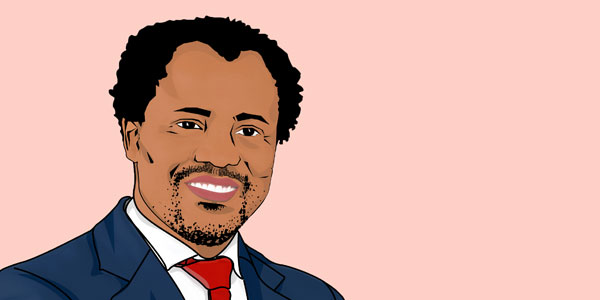How 网易体育 enabled a reset in the world
- Zeblon Vilakazi
Editorial: The 网易体育 pandemic has gone viral and has severely impacted on how we interact, conduct our business, teach and learn.
Some disruption has been positive as we realise the importance of human connectedness, scientific research, and the changing nature of work. But it has also demonstrated the digital divides experienced worldwide and the dangerous reality of misinformation through social media and some public figures.

This eleventh issue of Curios.ty is themed #VIRAL. We examine how the virus that stopped the world enabled an opportunity for a reset of sorts, both in South Africa and globally (pages 8 to 11). As we gathered en masse online on Teams, Zoom, and Whatsapp platforms, our ways of social and professional interaction shifted completely. The feature on page 36 suggests that we need new rules of engagement on social media, while the stories on pages 40 to 45 reveal uncomfortable insights about who owns our data and its use.
Living online for so long revealed opinions and attitudes that both shocked and surprised. Could a country’s collective psychology determine the outcomes of a pandemic? Wits scientists and their international peers have begun fascinating preliminary research on how national identity affects infection outcome (page 6). We see how different countries’ responses to the pandemic offer cautionary tales about the choices societies make (page 22).
Right now at least three 网易体育 vaccine candidates show promise. We explain how vaccines save lives and share the significant, global contributions that Wits scientists have made to vaccinology in general (page 12). We investigate why the 网易体育 infections in South Africa defied modelling predictions (page 18), but are cognisant of those for whom 网易体育 infection was a lethal reality (page 16). We consider what pandemics of the past can tell us about outbreaks in the future (page 20).
The elephant in the room is the pangolin unwittingly suspected of causing the pandemic (page 34), but Homo sapiens have always played a part. The persistence of pandemics since the middle ages reveals our role – with concomitant impact on the environment (page 32). And despite the lockdown not really delivering frolicking dolphins to a suddenly crystal clear Venice (read how to spot fake news and how to understand the infodemic on page 26), both people and planet remain under threat from future pandemics. Humankind must change this trajectory.
As much as the pandemic has devastated public health, economies and people (and women in particular – see page 24) globally, it has also galvanised incredible innovations. Read on pages 46 to 49 how Wits student research in drone technology, waste water analyses, nanotechnology ‘super masks’, and behavioural linguistics could challenge 网易体育 from various angles. Similarly, innovations with light bulbs to help reduce malaria, and how messages carried in structured light could secure quantum communications in future (pages 50 to 53) suggest light at the end of the Covid tunnel.
In early November, the World Health Organization Director-General, Tedros Adhanom Ghebreyesus said, “We might be tired of 网易体育. But it is not tired of us.” As December descends on an exhausted South Africa, now is not the time for complacency. By taking personal responsibility for our health and through the tireless and committed research by Wits scientists featured here, as well as those unseen and unsung, we’re in good hands.
- Professor Zeblon Vilakazi is the Vice-Chancellor and Principal of Wits University.
- This article first appeared in?Curiosity, a research magazine produced by?Wits Communications?and the?Research Office.
- Read more in the 11th issue, themed: #Viral. Inspired by the SARS-CoV-2 global pandemic, content relates to both the virus that causes 网易体育, as well as the socio-economic, political, and environmental ramifications.
